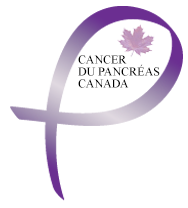Reviewing the Evidence Linking Alcohol Intake and Pancreatic CancerArticle by Melissa Hathaway
The Evidence This follows on from a study by researchers at the Mayo Clinic in Massachusetts published in February of this year in the World Journal of Gastroenterology, which considered the impact of alcohol intake on diseases of the pancreas2. Scientists examined the current literature to determine the effect of the amount, type and frequency of alcohol intake on both pancreatitis and pancreatic cancer. They concluded that around 70% of pancreatitis occurs in heavy drinkers (classified as more than three alcoholic drinks daily) and the risk increases further with higher alcohol consumption; other causes of chronic pancreatic inflammation include obstruction due to gallstones, high levels of fats known as triglycerides or conditions such as cystic fibrosis or lupus. Low to moderate alcohol intake appeared to have little impact on pancreatic cancer risk, but long-term heavy drinking did increase the likelihood of this diagnosis in comparison to light drinking. Based on the findings it was suggested that up to 5% of cases of pancreatic cancer were the direct result of alcohol consumption. However, as only a small proportion of heavy drinkers actually develop this cancer, genetic susceptibility and other environmental factors such as smoking and diet are also believed to be important, with gene-environment interactions likely. Even though the prevalence of pancreatic cancer amongst heavy drinkers is low, without chronic pancreatitis they still have a 40% greater chance of developing pancreatic cancer than the population as a whole; and this increases to twice the risk if they have chronic pancreatitis. To date there is no evidence that the likelihood of pancreatic cancer is greater when alcohol is the cause than when other factors are behind the development of pancreatic inflammation. Although further research is needed into this area, this review of the evidence suggests that in at least some cases, heavy drinking is likely to be a direct cause of pancreatic cancer. Potential mechanisms While long-term inflammation of the pancreas has been identified as a risk factor, the link between alcohol intake and pancreatic cancer may not be purely down to this in all cases – as indicated by those heavy drinkers who develop this cancer in the absence of chronic pancreatitis. Another possible explanation is the impact that alcohol misuse has on the overall quality of the diet. A poor dietary intake is common amongst those with heavy alcohol consumption, with studies frequently showing them to have a lower intake of both important food groups and micronutrients. A limited consumption of vitamins and minerals is believed to be relevant to the development of pancreatic cancer, as a rich supply of micronutrients in the diet is associated with a reduction in risk – possibly through the protective action of antioxidants. For instance, another recent piece of work by Mayo Clinic researchers identified that nutrients that are concentrated in fruit and vegetables – including carotenes, vitamin C and E – significantly reduced the likelihood of developing this type of cancer3. It has also been suggested that heavy alcohol use may increase the effects of other risk factors such as tobacco use and poor diet, but may cause changes in gene expression, activating those known as oncogenes that have the potential to result in cancer. This may be due to the exposure of the pancreatic cells to free radicals - reactive substances that cause damage to cells - as a result of the metabolism of alcohol leads to genetic changes and which genes are switched on. Drinking within safe limits Canada’s guidelines to reduce the risk of long-term health problems as a consequence of alcohol suggest no more than 10 drinks weekly for women and a maximum of 15 for men. For those wishing to drink alcohol, keeping within these limits is likely to reduce the risk of pancreatic cancer, based on the finding that more than three alcoholic drinks daily is detrimental to its development. While it isn’t easy to reduce your intake or abstain from alcohol when in the grip of heavy drinking, help is available from specialist treatment centres if needed. All across North America holistic rehabilitation, which encompasses medical, psychological and other therapies such as art and exercise, is available for those who have developed a dependency on alcohol. It therefore doesn’t matter whether you want to attend a rehab facility close to home or you wish to cross the border and access one in say Washington, Minnesota or Maine, effective treatment is available for those who require help in freeing themselves from heavy alcohol use. In doing so, not only can you potentially reduce the risk of pancreatic cancer, but other forms of cancer, along with damage to the heart, liver and nervous system. References: 1 Yadav D & Lowenfals AB (2013) The epidemiology of pancreatitis and pancreatic cancer. Gastroenterology. 144 (6) 1252-61. 2 Herreros-Villanueva M et al (2013) Alcohol consumption on pancreatic diseases. World Journal of Gastroenterology. 19 (5) 638-47. 3 Jansen RJ et al (2013) Nutrients from fruit and vegetable consumption reduce risk of pancreatic cancer. Journal of Gastrointestinal Cancer. 44 (2) 152-61. About Melissa Hathaway: Melissa studied health, fitness and nutrition at college, and since motherhood has worked as a freelance writer, informing her readers of the importance of a healthy lifestyle. We thank Melissa for taking the time to research and write this informative article for us. |





 While the definitive causes of pancreatic cancer remain unknown, a piece of research conducted by scientists at the University of Pittsburgh Medical Center and published in the June edition of the journal Gastroenterology has explored
While the definitive causes of pancreatic cancer remain unknown, a piece of research conducted by scientists at the University of Pittsburgh Medical Center and published in the June edition of the journal Gastroenterology has explored 
de levée de fonds